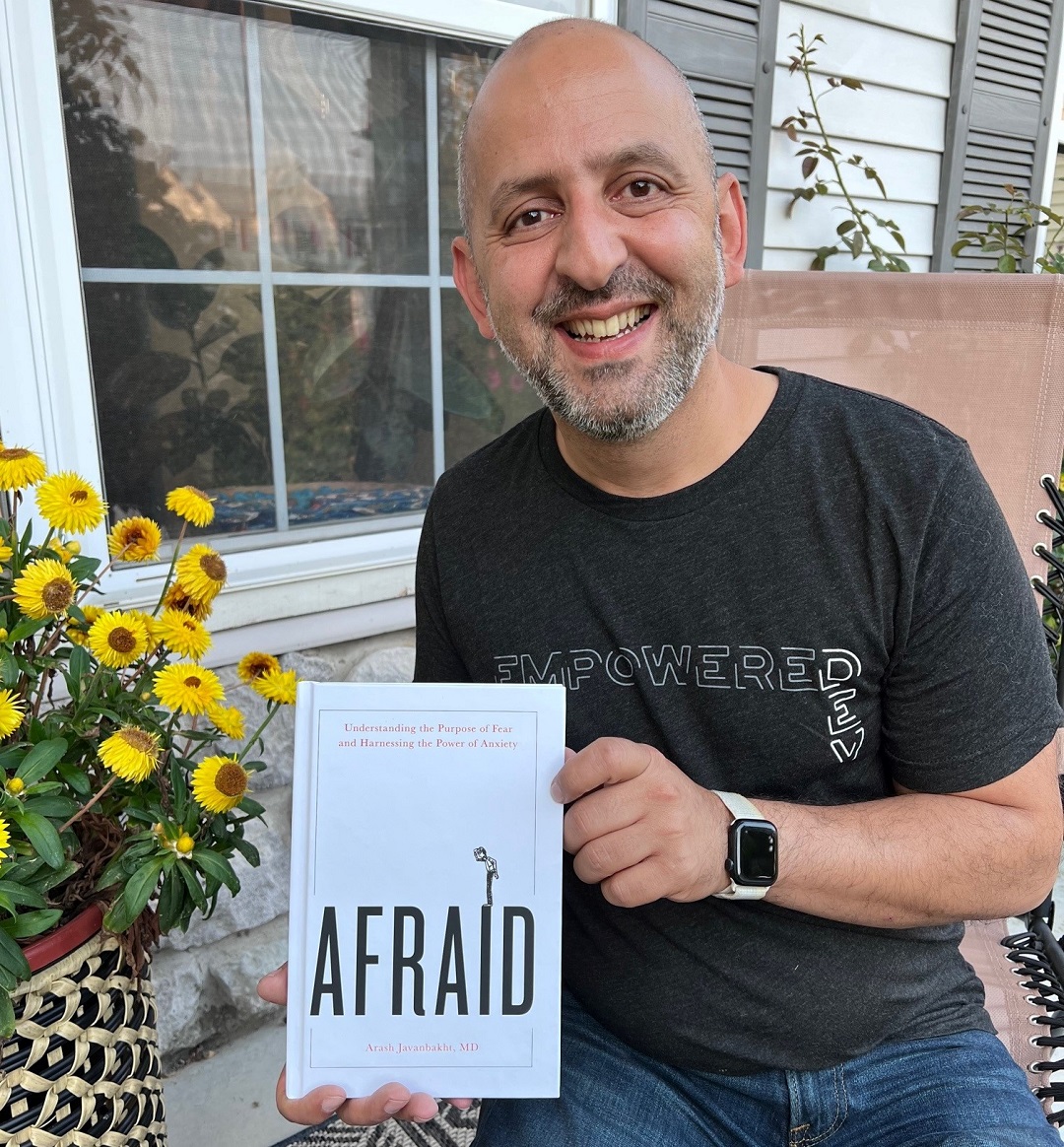For Wayne State University’s Arash Javanbakht, M.D., an in-demand practicing psychiatrist and neuroscience researcher, nights and weekends for the better part of one year were his time. Time to write, review, throw out a third of what he wrote at times, and rewrite half of what he kept.

“This was so much work, beyond what I thought it would be,” he said.
The goal was to complete a dream project in the works for years, about things he had “done and known for years.”
The result is his first book, “Afraid: Understanding the Purpose of Fear and Harnessing the Power of Anxiety” (Rowman & Littlefield Publishers, $32), available now wherever books are sold.
“Afraid” is both a broad and entertaining overview of fear and anxiety, based on science, from evolution to modern-day challenges, and how clinicians treat trauma, anxiety and post-traumatic stress disorder today. Fear is a primitive, deeply-rooted emotion pervasive in modern life, especially in the post-pandemic and current political context of society, he said.
The book explores how childhood experiences define the role fear and anxiety play in people as adults, how fear may or may not affect genes, what excessive fear and anxiety can do to brains and bodies, and the role of fear and anxiety in the wake of trauma. In a way understandable to the public, Dr. Javanbakht explains why people love to be scared; the link between bravery, meaning, aggression, creativity and fear; and the diseases of fear and anxiety, and how to manage them.
He even writes about his own fear of heights, and how he conquered it, eventually flying in a fighter jet.
Readers should come away with a better understanding of fear and anxiety and how to tamp its negative effects, how to treat it medically if necessary and how protect oneself from fear’s most negative consequences.
The topics are ones he knows well. Dr. Javanbakht, an associate professor of Psychiatry and Behavioral Neurosciences, directs the Stress, Trauma and Anxiety Research Clinic, or STARC, at the School of Medicine. He is renowned for his research of biology and treatments of anxiety and PTSD, and invention of novel augmented reality treatment technologies. In the clinic, he treats civilians, refugees and first responders who suffer from PTSD.
Dr. Javanbakht is a frequently invited keynote speaker at national and international conferences, as well as universities, for his expertise in the subjects covered in the book. His public scholarly work has been read by millions. Multiple media outlets and scientific organizations, including CNN, NPR, Smithsonian, Al Jazeera, the Washington Post, PBS, Scientific American, Science, Lancet, American Psychiatric Association, and the American Academy of Child and Adolescent Psychiatry, have featured his work. He is a regular contributor to The Conversation, is featured in the documentary “The Elephants and the Grass: A Story of South Sudan,” and is the academic advisor on the PBS documentary “Mysteries of Mental Illness.”
He is quick to note that he wrote the book with the reader’s time in mind. Each chapter can be read independently. Chapter titles include The Origin of Fear: Evolved to be Scared, Why Is My Heart Pounding?, Fear in the Body, Riding the Beast: How to Use Fear to Our Advantage, Fear That Rules Us: Politics of Fear, and more.
To learn more about Dr. Javanbakht and the Stress, Trauma, and Anxiety Research Clinic, visit www.starclab.org